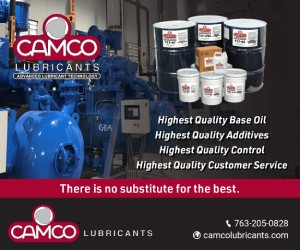President’s Message by Dave Rule

The one issue that everyone can agree on is that not just one refrigerant will address all of these application requirements. However, in considering the refrigerant that provides efficiency and performance while addressing the concerns of our environment, it is critical that the science and technology be addressed over the commercial marketing and arbitrary regulations that may exist.
This is our mission at IIAR to ensure that our industry, regulatory community and the general public have the facts and technology necessary to evaluate this important decision and select the best refrigerant for their system. Each refrigerant application must provide many years of safe and economic performance while ensuring that safe guards are in place concerning future environmental impact.
This issue of the Condenser features a cover story on secondary loop cooling and an article prepared by one of our members titled “The Catch 22 of R22 Replacements.” Our secondary loop article is important since it addresses one of the “new – old” technologies that is being applied today to expand the opportunities to consider natural refrigerants. The feature article on refrigerants offers a comprehensive discussion concerning the recent history of our transition from the “Freon” refrigerants and the actual science behind refrigerant performance, economics and environmental impact. Both articles provide thoughtful reading and I encourage you to take the time to consider this information.
So, what is IIAR doing to address this important question? This really begins with the support of our membership and the efforts moving forward to ensure that the science and technology is available for our industry and the regulatory community to consider. Our efforts are also focused on the development of a sound education program through the Academy of Natural Refrigerants. Knowledge is the corner stone of our Advocacy program when it comes to making informed decisions on the refrigerant that will address our system needs in the future.
The regulatory community across the world is currently driving this refrigerant transition in their efforts to address the harmful effects of both Ozone Depletion and the more current issues of Global Warming. Here in the United States, we face a confusing regulatory environment where segments of the regulatory agencies support the use of natural refrigerants based on their positive environmental characteristics. While other sectors of the regulatory community make it increasingly difficult to use natural refrigerants due to arbitrary regulations.
Education will be a major part of our advocacy program moving forward and plays an important part in building the knowledge base in our membership and the regulatory community. Since the founding of the Academy of Natural Refrigerants, our voluntary committees and IIAR Staff have been working hard to develop a comprehensive certificate program to address safety standards and process safety management subjects to ensure that our engineers, PSM/RMP providers and regulatory community are well trained and have appropriate credentials to work in this industry.
I am pleased to report that the ANR courses are available through our online Learning Management System and the curriculum covers a broad number of important subjects. Virtually all of the IIAR standard courses are now available with IIAR-6 coming online within just a few weeks. The ANR safety courses now include basic PSM/RMP and Process Hazard Analysis, and Mechanical Integrity will be available in just a few months followed by PSM Engineering Calculations. The completion of these important certificate programs will provide individuals working in our industry with the opportunity to complete these courses with examination online and demonstrate their competence in the specific field of study.
IIAR is your organization and relies on your membership and support to complete this work. Your activity in this mission is critical to our success and the advocacy program to ensure our industry is well informed when considering the appropriate refrigerant for their system and the future impact that it may have on our environment. Education is the key to making these decisions and to ensuring that our industry is prepared to address the efficient design of our systems and the safety of our workers.
I look forward to working with all of our members to address these important issues and, if you are not a member, I encourage you to join today and to get involved with the IIAR mission.















